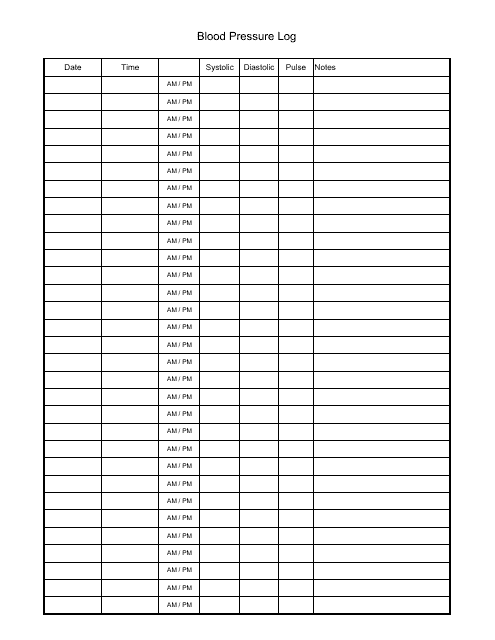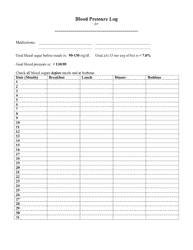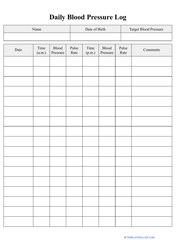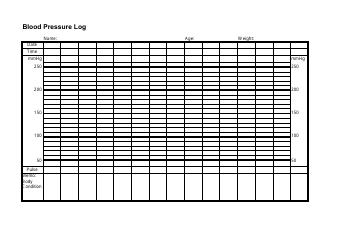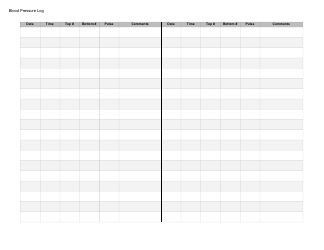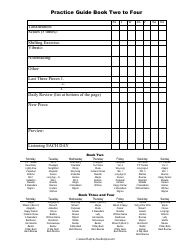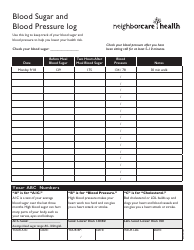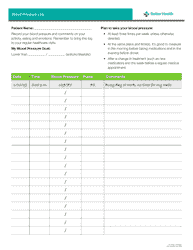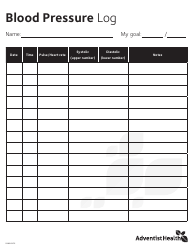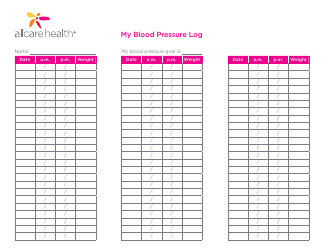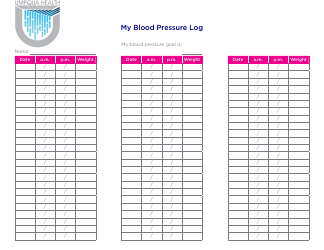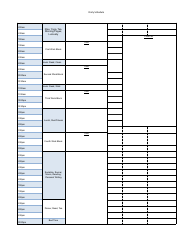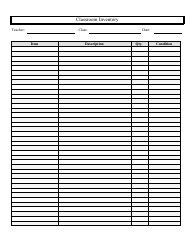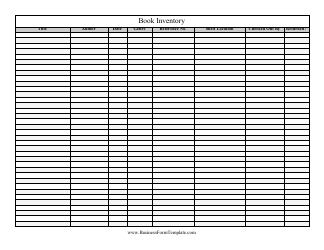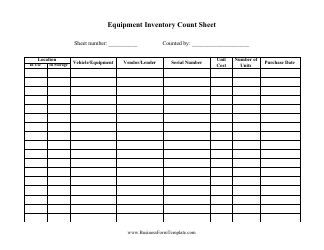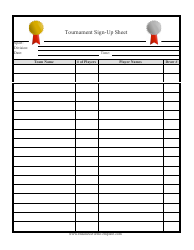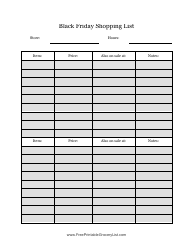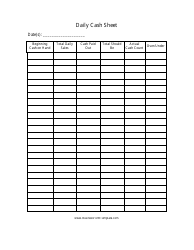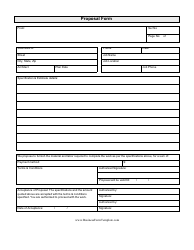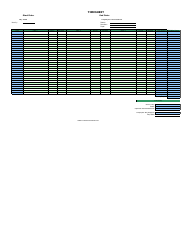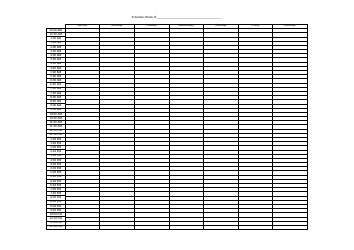Blood Pressure Log - Big Table
A Blood Pressure Log is a tool used to track and record blood pressure readings over time. It helps individuals monitor their blood pressure levels and identify any patterns or fluctuations. This information can be shared with healthcare professionals to assess overall health and make necessary adjustments in treatment if needed.
The individual themselves usually files the blood pressure log. It is a personal record of their blood pressure readings.
FAQ
Q: What is a blood pressure log?
A: A blood pressure log is a record of your blood pressure readings over time.
Q: Why should I keep a blood pressure log?
A: Keeping a blood pressure log can help you and your healthcare provider to monitor your blood pressure and make necessary treatment adjustments.
Q: How do I keep a blood pressure log?
A: You can keep a blood pressure log by recording your blood pressure readings, including the date, time, and the numbers for both systolic and diastolic pressure.
Q: What is considered normal blood pressure?
A: Normal blood pressure is typically below 120/80 millimeters of mercury (mmHg).
Q: What is considered high blood pressure?
A: High blood pressure, also known as hypertension, is generally defined as having a blood pressure reading of 130/80 mmHg or higher.
Q: What are the risks of high blood pressure?
A: High blood pressure can increase the risk of various complications, including heart disease, stroke, and kidney problems.
Q: How often should I check my blood pressure?
A: It is recommended to check your blood pressure at least once a year, but more frequent monitoring may be necessary depending on your health condition.
Q: What can I do to maintain a healthy blood pressure?
A: Maintaining a healthy blood pressure can involve lifestyle changes such as regular exercise, a balanced diet low in sodium, limiting alcohol intake, and managing stress.
Q: When should I seek medical attention for high blood pressure?
A: You should seek medical attention for high blood pressure if your readings consistently exceed normal ranges or if you experience symptoms such as severe headaches, chest pain, or shortness of breath.
Q: Can medication be prescribed to manage high blood pressure?
A: Yes, your healthcare provider may prescribe medication to help manage high blood pressure if lifestyle changes alone are not sufficient.
